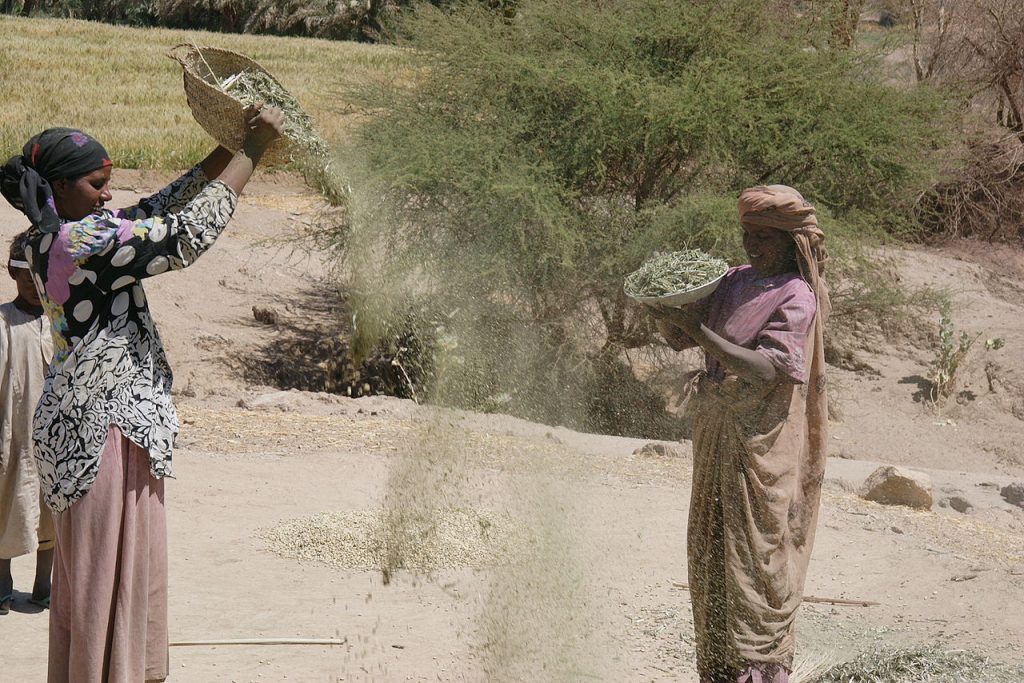Psalms 1
Psalms 1 - Overview
Let's read Psalms 1 and then look at some ways to pull meaning from this classic poem.
1 Blessed is the man
who walks not in the counsel of the wicked,
nor stands in the way of sinners,
nor sits in the seat of scoffers;
2 but his delight is in the law of the Lord,
and on his law he meditates day and night.
3 He is like a tree
planted by streams of water
that yields its fruit in its season,
and its leaf does not wither.
In all that he does, he prospers.
4 The wicked are not so,
but are like chaff that the wind drives away.
5 Therefore the wicked will not stand in the judgment,
nor sinners in the congregation of the righteous;
6 for the Lord knows the way of the righteous,
but the way of the wicked will perish.

Discussion Questions
How does verse 6 summarize the idea of the poem? Go back through the poem and look how each verse connects with one of the two ways mentioned in verse 6.
The word "sinner" in Hebrew means to miss the mark or miss the way. How does that idea connect with verse 6?
Meditating on the torah
Verse 2 describes a person who: "his delight is in the law of the Lord, and on his law he meditates day and night."
In Hebrew, the word law is "torah." The first five books of Moses are known to Jews as the Torah. They are the books of the laws of Moses. But the word "torah" or law can also be used in other contexts, like in Proverbs it talks about the law of our father and mother. Or the Bible can talk about the law of a king. The Greenberg translation of the Psalms translates this word as "divine wisdom."

Liran1977, CC BY-SA 3.0 <https://creativecommons.org/licenses/by-sa/3.0>, via Wikimedia Commons
Discussion Questions
What does the word law in verse 2 mean to you?
Is there divine wisdom to be found in these Biblical texts? How can we find meaning in them?
Why are we contrasting the wicked and someone who meditates on God's law? Those may not seem like immediately apparent opposites. Are they opposites? Why?
The Tree and the Chaff
The key imagery of the poem is found in verse 3 & 4, contrasting the tree and the chaff. To understand what chaff is, we need to understand an ancient farming technique known as winnowing.
After collecting grain from a plant, there is a lot of other debris mixed in. By throwing the grain in the air, the grain will land in a pile, and the lighter elements, that are light like straw, blow away in the wind. Chaff is the lighter debris that blows away in the wind that is useless and no one want to eat.

David Haberlah at the English-language Wikipedia, CC BY-SA 3.0 <http://creativecommons.org/licenses/by-sa/3.0/>, via Wikimedia Commons
Discussion Questions
So think about the contrast between this grand tree and chaff. List contrasting qualities between a tree and chaff. For instance, which one is long-lasting, and which one is impermanent? Think of some other contrasts.
What does the tree represent? What does the chaff represent?
Comparative Study: Sometime you can get a new idea by comparing an idea in one place in the Bible with a similar idea in another part of the Bible. Let's try it out and see how it works.
Jeremiah reflects on two different types of individuals in a way that is similar to Psalms 1.
Thus says the Lord:
“Cursed is the man who trusts in man
and makes flesh his strength,
whose heart turns away from the Lord.
He is like a shrub in the desert,
and shall not see any good come.
He shall dwell in the parched places of the wilderness,
in an uninhabited salt land.
“Blessed is the man who trusts in the Lord,
whose trust is the Lord.
He is like a tree planted by water,
that sends out its roots by the stream,
and does not fear when heat comes,
for its leaves remain green,
and is not anxious in the year of drought,
for it does not cease to bear fruit.”
- Jer 17:5-8


Discussion Questions
First reflect on what Jeremiah is writing. What contrasts are there between the shrub and the tree? What is Jeremiah saying?
Look at the description of the tree in Psalms 1. Which descriptions of the tree can you also find in this passage from Jeremiah? What new ideas does Jeremiah bring out?
Conclusion
What new inspiration or take-aways have you gained about Psalms 1? How can you apply the wisdom here to your own life?
“Scripture quotations are from The ESV® Bible (The Holy Bible, English Standard Version®), copyright © 2001 by Crossway, a publishing ministry of Good News Publishers. Used by permission. All rights reserved.”